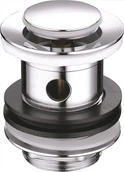Hey there! As a supplier of Cup Washers, I've been getting a lot of questions lately about whether our products are suitable for low - temperature environments. So, I thought I'd write this blog to share some insights on this topic.


First off, let's talk about what a Cup Washer is. If you're not familiar, a Cup Washer is a nifty device that helps you clean your cups quickly and efficiently. You can check out our range of Cup Washers at Cup Washer. We also have Cup Rinser in Sink and Cup Rinser For Sink options that are super convenient for your kitchen or bar setup.
Now, back to the main question: Are cup washers suitable for low - temperature environments? Well, it depends on a few factors.
How Low Temperatures Affect Cup Washers
One of the main concerns with low temperatures is the freezing of water. Most cup washers rely on water to clean the cups. When the temperature drops below the freezing point of water (0°C or 32°F), the water inside the pipes and components of the cup washer can freeze. This can cause a whole bunch of problems.
For starters, frozen water expands. This expansion can put a lot of pressure on the pipes and valves in the cup washer. Over time, it can lead to cracks and leaks. Once there are cracks or leaks, the cup washer won't work properly. It might not be able to deliver the right amount of water to clean the cups, or it could start spraying water everywhere.
Another issue is the performance of the cleaning agents. Many cup washers use detergents or cleaning solutions to get the cups really clean. In low temperatures, these cleaning agents might not work as effectively. The chemical reactions that help break down dirt and grime slow down in cold conditions. So, your cups might not come out as clean as they would in a normal - temperature environment.
Our Cup Washers and Low - Temperature Resistance
At our company, we've done a lot of research and development to make our cup washers as resistant to low temperatures as possible.
We use high - quality materials in the construction of our cup washers. The pipes are made of materials that can withstand some degree of expansion due to freezing water. They are designed to be flexible enough to handle the pressure without cracking easily.
We also have an option for a built - in heating system in some of our cup washers. This heating system helps keep the water at a suitable temperature, even in low - temperature environments. It ensures that the water doesn't freeze and that the cleaning agents work effectively.
However, it's important to note that there are limits. If the temperature gets extremely low, say well below - 10°C (14°F), even our most advanced cup washers might face some challenges.
Tips for Using Cup Washers in Low - Temperature Environments
If you're planning to use a cup washer in a low - temperature environment, here are some tips to keep it working well:
- Insulate the Cup Washer: You can use insulation materials to wrap around the cup washer and its pipes. This helps keep the heat in and prevents the water from freezing. There are many types of insulation materials available in the market, like foam insulation sleeves.
- Use a Heated Space: If possible, place the cup washer in a heated area. This could be a room with a heater or a space that is kept at a relatively stable temperature.
- Drain the Water: When you're not using the cup washer for an extended period in cold weather, drain all the water from the system. This prevents the water from freezing inside the pipes.
Real - World Examples
We've had some customers who have used our cup washers in low - temperature environments. For example, a bar in a mountain resort. The temperature there can drop quite low during the winter months. They initially had some concerns about the performance of the cup washer. But after following our tips and using the cup washer with the built - in heating system, they were really happy with the results. The cups were cleaned properly, and the cup washer didn't face any major issues.
Another customer had a small coffee shop in a cold climate. They insulated the cup washer and made sure to drain the water when they closed the shop at night. This helped them keep the cup washer running smoothly throughout the winter.
Conclusion
So, are cup washers suitable for low - temperature environments? The answer is yes, but with some precautions. Our cup washers are designed to handle moderately low temperatures, and with the right steps, you can use them effectively even in colder conditions.
If you're interested in learning more about our cup washers or have any questions about using them in low - temperature environments, feel free to reach out. We're always here to help you make the best choice for your needs. Whether you're running a bar, a coffee shop, or just want a great cup washer for your home, we've got you covered. Contact us to start a discussion about your procurement needs. We can offer you the best solutions and advice based on your specific situation.
References
- "Handbook of Food Engineering Operations" - This book provides in - depth information on the effects of temperature on cleaning processes in food - related equipment.
- "Principles of Refrigeration" - It explains the science behind freezing and how it affects different materials and systems.






